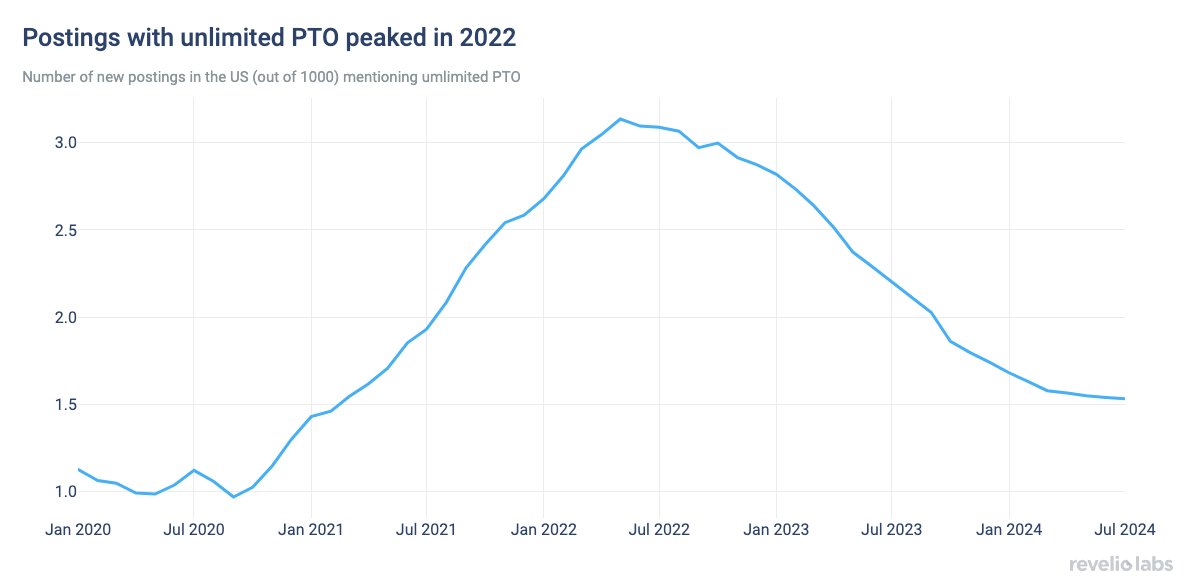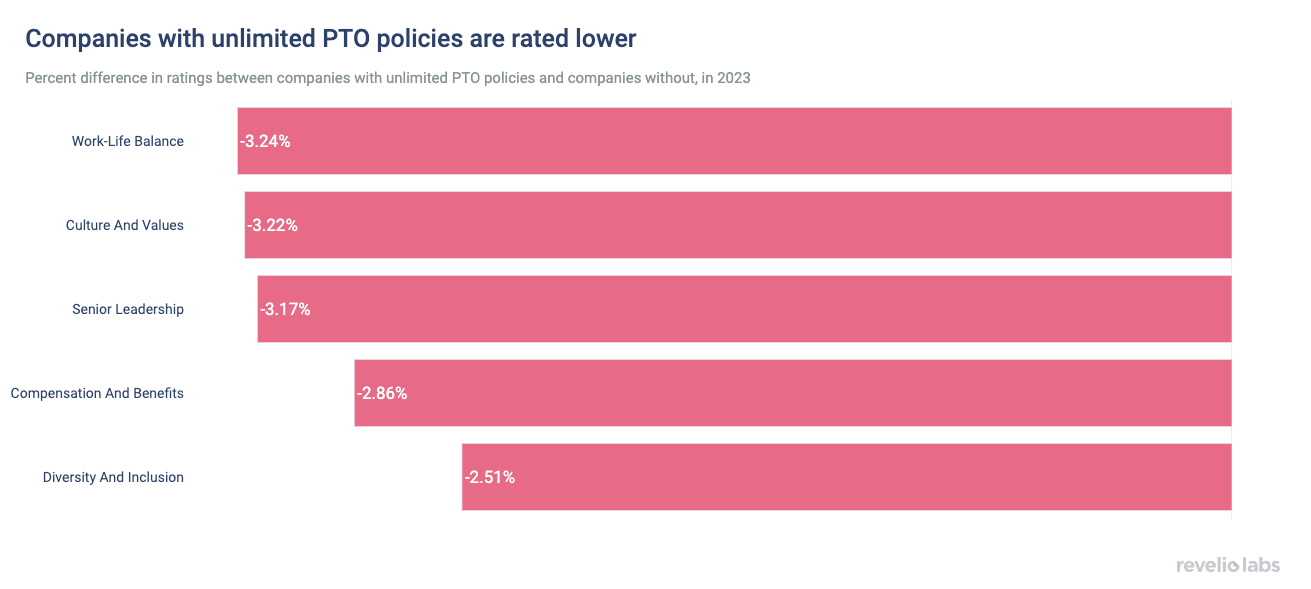The Limited Appeal of Unlimited Paid Time Off
This perk is becoming more popular, but not with workers

The share of new job postings in the US mentioning unlimited PTO increased significantly in late 2020, peaking in mid-2022 as part of a broader response to the growing demand for flexible work arrangements. However, the recent decline in the share may suggest a reconsideration of this policy.
Unlimited PTO isn’t as attractive as some companies might hope, as job postings mentioning unlimited PTO on average take longer to fill.
Companies with unlimited PTO policies tend to also have lower ratings compared to their competitors, especially in work-life balance.
Unlimited paid time off (PTO) has gained traction in recent years. This policy allows employees to take as much time off as necessary for illness, caregiving, or mental health without worrying about depleting their leave balance. However, it can lead to potential issues such as uncertainty about the appropriate amount of time off. Some workers might fear judgment or career repercussions for taking extended leave, resulting in underutilization of the benefit. Additionally, without clear guidelines and effective communication, maintaining productivity and fairness can be difficult, potentially affecting team dynamics and overall morale. This week, in collaboration with NPR, we explore the trend of unlimited PTO and examine its impact on employee sentiment.
Using Revelio Labs’ new unified postings data (COSMOS), we find that the percentage of new job postings in the US mentioning unlimited PTO increased significantly in late 2020, peaking in mid-2022. This trend highlighted a broader response to the increasing demand for flexible work arrangements, driven by changing workforce expectations and a greater emphasis on work-life balance. Companies initially embraced this policy to attract and retain top talent, offering employees more control over their time off to address personal needs, reduce burnout, and improve overall job satisfaction. However, the share has since declined, suggesting that some may be reassessing its effectiveness.


Sign up for our newsletter
Our weekly data driven newsletter provides in-depth analysis of workforce trends and news, delivered straight to your inbox!
Unlimited PTO isn’t as attractive as some companies might hope. In fact, we find that job postings mentioning unlimited PTO take longer to fill on average. Critics argue that the policy can be ambiguous, leaving employees uncertain about how much time off is truly acceptable to take without facing potential repercussions. Additionally, there are concerns that unlimited PTO might be used as a cost-saving measure by employers to avoid paying out accrued vacation days, which can further contribute to its unpopularity. As a result, despite its stated benefits, the policy's perceived drawbacks can make it less attractive to job seekers, leading to longer recruitment time for positions offering unlimited PTO.


Companies with unlimited PTO policies also tend to have lower ratings compared to their competitors, particularly in areas such as work-life balance. The pressure to take less time off due to the lack of clear guidelines and the fear of being perceived as less committed can lead to burnout and reduced job satisfaction. Additionally, when the policy is perceived as a cost-cutting measure rather than a genuine benefit, it can further diminish trust and satisfaction among employees.


While unlimited PTO offers flexibility, its effectiveness depends largely on how it is implemented. Challenges often stem from unclear communication and expectations from employers. Employees may feel uncertain about how much time off is acceptable, leading to anxiety and underutilization of the benefit. This ambiguity can foster a culture where employees fear being judged for taking time off, potentially resulting in burnout and decreased job satisfaction. To maximize the benefits of unlimited PTO, companies should establish and communicate clear guidelines, creating a supportive and trusting work environment. When implemented effectively, unlimited PTO can greatly enhance work-life balance and overall job satisfaction for employees.


